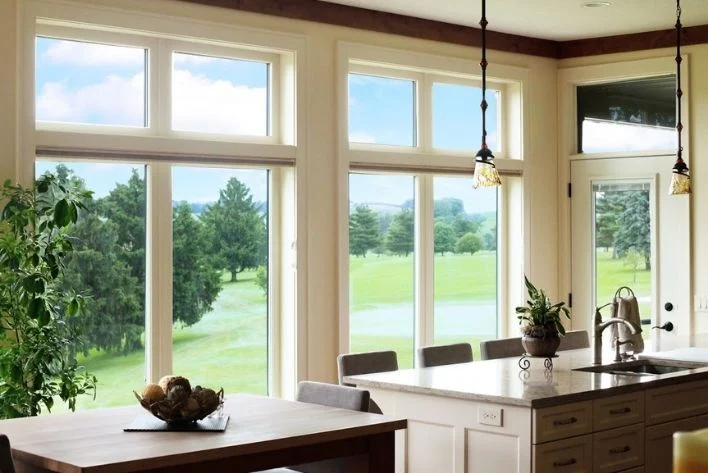We’re diving into the fascinating world of house windows! Those seemingly ordinary pieces of glass bring light and fresh air into our homes. But have you ever wondered how long they actually last? In this article, we’ll be exploring the lifespan of house windows and sharing some valuable tips on when to replace them.
The average lifespan of a house window
House windows, like any other component of your home, have a lifespan. While it can vary depending on various factors, such as the quality of materials and installation, the average lifespan of a house window falls between 15 and 30 years. This is not an exact science – some windows may last even longer with proper care and maintenance, while others might require replacement sooner due to wear and tear or damage. It’s important to keep an eye out for signs that your windows are reaching the end of their lifespan. One common indicator is draftiness. If you notice cold drafts seeping through the edges or corners of your windows, it could be a sign that they are no longer providing sufficient insulation. Another telltale sign is difficulty in opening or closing them smoothly. If you start noticing condensation forming between multiple panes of glass (in double or triple-glazed windows), it may suggest seal failure and compromised energy efficiency.
The signs that your windows need to be replaced
Windows play a crucial role in maintaining comfort and functionality. So, when is it time to replace your windows? Check out these key indicators. If you notice drafts or air leaks around your windows, this is a clear sign that the seals have deteriorated and are no longer providing adequate insulation. These drafts can lead to increased energy bills as your HVAC system works harder to compensate for the loss. Pay attention to any condensation or fogging between the window panes. This indicates that there is a failure in the insulated glass unit (IGU), reducing its ability to control temperature transfer efficiently. Another clue is difficulty in opening or closing your windows. This could be due to worn-out hardware or warping of the frame caused by exposure to moisture over time. If you notice excessive noise from outside infiltrating your home even when the windows are closed, it may be an indication that they are not effectively blocking sound anymore.
The different types of windows
There are a variety of options to choose from. Each type of window has its unique features and benefits. Let’s explore the different types of windows available on the market today. First up, we have casement windows. These windows are hinged on one side and open outward with a crank mechanism. Casement windows offer excellent ventilation and can be easily opened or closed with minimal effort. We have double-hung windows. These windows consist of two sashes that slide vertically within the frame. They allow for both top and bottom straps to be opened for maximum airflow control. Another popular option is bay or bow windows. These large, curved windows protrude from the exterior wall, creating a beautiful architectural feature in any room. Bay or bow windows provide expansive views and let in plenty of natural light.
The benefits of replacing your windows
Replacing your windows can offer a multitude of benefits for homeowners. First and foremost, new windows can greatly improve the energy efficiency of your home. Older windows tend to be less insulated, allowing cold air drafts to seep in during the winter months and warm air leaks during the summer. By investing in new windows, you’ll notice a decrease in your energy bills as your HVAC system won’t have to work as hard to maintain a comfortable temperature. Replacing your windows can also enhance the overall aesthetics of your home. With various styles and designs available on the market today, you can choose windows that complement both the interior and exterior of your house. This upgrade not only adds value but also boosts curb appeal. Another advantage is increased security. Modern window technologies provide stronger frames and improved locking mechanisms, making it more difficult for potential intruders to break into your home. You’ll have peace of mind knowing that you’ve taken measures to protect yourself and your loved ones. Replacing old or damaged windows can significantly reduce outside noise infiltration. If you live near busy streets or noisy neighbours, upgrading will create a quieter environment inside.
How to choose the right windows for your home
Choosing the right windows for your home is a crucial decision that can greatly impact its overall look, comfort, and energy efficiency. When it comes to selecting new windows, there are several factors to consider. Think about the style of your home and how different window designs will complement its aesthetic. Whether you have a traditional or modern house, there are numerous options available, such as double-hung windows, casement windows, or even bay windows. Each type has its unique features and benefits. Think about the climate you live in. Will you need windows with enhanced insulation properties? Do you require hurricane-resistant or soundproofing capabilities? Understanding these additional considerations will help narrow down your choices further. Remember to research reputable manufacturers or suppliers who offer high-quality products and excellent customer service. Reading reviews from other homeowners can provide valuable insights into their experiences with different brands. Lastly, take advantage of professional guidance when making this significant investment in your home. Consulting with experienced window contractors or interior designers can be beneficial in helping you make an informed decision based on your budgetary constraints and personal preferences.





